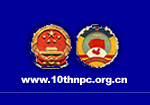China's medical services are in dire need of reform, the country's top political advisers and national lawmakers claimed yesterday.
National adviser Sun Jiye, speaking at the ongoing CPPCC National Committee meeting, urged the government to implement sweeping changes as the price of medicine and medical services creep ever higher. "The current exorbitant medicine and medical service costs are beyond the reach of the people," he said.
"While most commodity prices declined continuously since we moved to a market economy, the prices of medicine and medical service are going the other way", said Sun. "They have kept on rising and rising, which has kept many patients away from seeing doctors."
Per capita clinical payments and hospitalization expense increased annually by 13 percent and 11 percent respectively in the past eight years, according to statistics released by the Ministry of Health.
Experts say the dramatically rising medical costs have taken a heavy toll on the public, whose complaints are rising correspondingly.
The difficulty in seeing doctors and setting up a comprehensive health care system is among the top 10 most concerned issues the public have urged on-going NPC and CPPCC National Committee to address, according to an online survey carried out by the People's Daily's web edition www.people.com.cn.
"Nearly 48.9 percent of Chinese people cannot afford to see doctors when they fall ill and 29.6 percent are not hospitalized whenever they should be," Gao Qiang, vice-health minister, said earlier this year, quoting the result of the third survey about country's healthcare services.
The problem is more acute in rural areas, where only 20 percent of the country's medical resources are available amid the some 70 percent of the country's population.
"The difficulty in seeking medical help is one of farmer's three worries. The other two being natural disaster and no one to take care them when in old aged", said Mao Fengmei, an NPC deputy and a farmer from Northeast China's Liaoning Province.
China, with 22 percent of world's population, only boasts about 2 percent of world's total medical resources.
"Inadequate government input at public hospitals is one of the reasons leading to the medical bottleneck," Sun said, who listed the "laggard health care system reform" and the disorderly market as reasons.
"The government should boost its financial help in public healthcare systems", Sun said. His view was shared by Wang Ying, an NPC deputy from Southwest China's Yunnan delegation.
"As the healthcare is a government-initiated public welfare undertaking, the government should shoulder its responsibility," said Wang, a doctor.
The government appears to be taking heed of its critics.
Premier Wen Jiabao has vowed to improve the medical system to make services more accessible and affordable for the public. Rural areas will receive special attention this year, Wen pledged.
Such promises were welcomed by Mao, the farmer-turned legislator.
"The resolve shown by this administration to address this issue is encouraging," she said.
She added that improving the health care system in countryside is an urgent matter.
(China Daily March 10, 2005)
|

